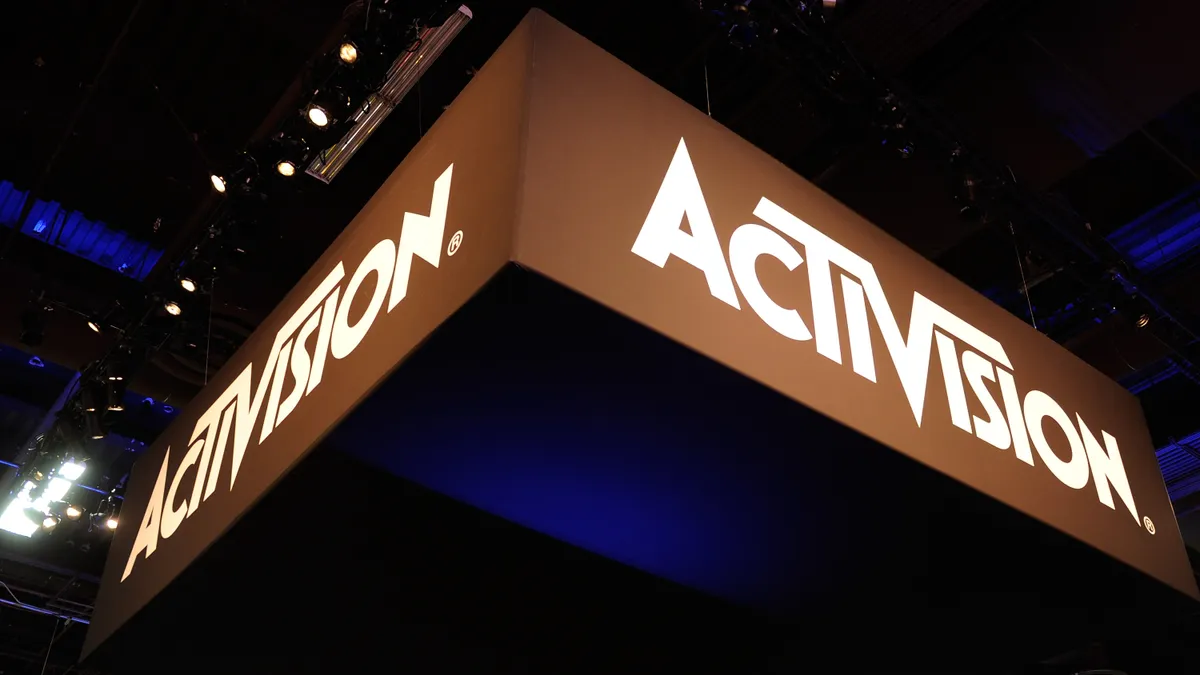Last month's news that the state of California planned to file a civil suit against video game publisher Activision Blizzard shook an entire industry.
The 29-page court filing detailed a long list of allegations: the company "fostered a sexist culture," California's Department of Fair Employment and Housing said, by paying women less than men despite instances in which employees performed substantially similar work; assigning them to lower level jobs and promoting them at slower rates compared to men; firing or forcing them to quit at higher frequencies than men; and subjecting them to various forms of sexual harassment.
All of those actions continued, according to the suit, despite multiple reports to Activision Blizzard's HR department and top executives — some of whom allegedly engaged in the harassment directly. "Defendants continuously condone the quid pro quo and hostile work environment," one section reads. "The message is not lost on their employees."
Workers at the company staged a walkout and formed a group, ABK Workers Alliance, which put forward a list of demands. Activision Blizzard has since announced the departure of former president J. Allen Brack, who was named in the suit. CEO Bobby Kotick said in a July 27 statement that the company hired law firm WilmerHale to conduct a review of its policies and procedures.
Sources who spoke to HR Dive said the suit and subsequent actions by Blizzard's executive team portray a work environment marred by routine harassment — and an HR department that enabled that environment.
In particular, Kotick's announcement of a review and his statement that discrimination and harassment have "no place" at Activision Blizzard are "fairly normative" compared to past examples of organizations responding to similar allegations, according to Stephanie Bonnes, assistant professor of criminal justice at the University of New Haven.
But it is difficult to take such pronouncements at face value, she noted, given the lawsuit's description of a "'frat boy' culture" allegedly perpetuated at Activision Blizzard. For example, the suit points out events like "cube crawls," in which male employees drank in the workplace and made their way through different office cubicles in part to engage in inappropriate behavior toward female employees.
"When you have a term like 'cube crawl,' you know that this is ritualized, it's a pervasive part of the organization," Bonnes said. "It's not like these companies don't have policies … Their workplace is completely organized around ignoring those policies."
An effective HR department operating in an environment with little tolerance for harassment and discrimination can investigate and follow up on complaints, Bonnes said. But in other organizations, HR itself may be enabling and protecting harassers while systematically removing victims from the organization or ensuring they quit.
Activision Blizzard's response to the suit appeared to be driven by external pressures, according to Rosalind Chow, associate professor of organizational behavior and theory at Carnegie Mellon University's Tepper School of Business. Research suggests that could limit the extent of changes made moving forward, she said; "it's not going to be a cultural change, they're going to do what is needed to stay out of the limelight."
The decision to hire a third party to conduct an investigation also may elicit criticism. In a letter published by gaming news outlet IGN, ABK Workers Alliance rejected Activision Blizzard's selection of WilmerHale, citing relationships between the firm and the company's executives as well as the firm's previous work "discouraging workers' rights and collective action."
"Because that third party's fees are being paid by the company, they're not truly an independent third party," Chow said. "The people who are aggrieved probably didn't have a say in choosing who that third party was."
Additionally, the lawsuit alleged that an internal review of Activision Blizzard's HR department determined the existence of a "big lack of trust," with a separate note that the department was "not held in high regard." California said employee complaints were "treated in a perfunctory and dismissive manner and not kept confidential," with the result being that female employees were subjected to retaliation.
The suit's contents feed into societal impressions that HR departments act primarily to represent their organizations rather than employees, creating a chilling effect, said Amanda Armour, chief people officer at software company Versus Systems. "That's why so many people feel hesitancy when they're coming forward."
Companies can tout having diversity, inclusivity and psychologically safe workplaces, but the reality is that those statements must be followed through with actions, Armour said.
That can be all the more difficult to achieve when top performing employees who engage in poor behaviors are not punished for those behaviors. "If star performers are jerks and aren't dealt with, that's not an HR problem, that's a leadership problem," Chow said. "If we let people engage in poor behavior and they're not punished for it, that sends a message to everyone else in the organization that this behavior is good and they should do it too or, at best, it's tolerated."
Activision Blizzard's leadership also was criticized in the days after the suit when an email from Fran Townsend, executive vice president for corporate affairs, was shared on social media sites. The email denied the allegations, saying the suit "presented a distorted and untrue picture of our company, including factually incorrect, old, and out of context stories — some from more than a decade ago."
Among other things, this type of response is antithetical to good leadership practices, Chow said; "trenching down and getting defensive — that is the exact opposite of what we tell leaders to do."
The employee response, and how to move forward
Bonnes said the employee walkout is one detail that stands out in the Activision Blizzard debacle, similar to previous employee demonstrations in response to harassment and discrimination allegations at companies like Google. "I think it signaled that individuals who were employed were not going to stand for this treatment," she added.
The walkout also hints at the importance of social media in today's workplace. "Social media helps expose a lot of things," Chow said. "There's opportunities for individuals to really exercise some influence over what companies are doing simply by putting information into the public domain in a way that just wasn't available to them previously."
Notably, an Activision Blizzard shareholder group also weighed in on the company's response, criticizing statements from executives and calling on Activision Blizzard to increase board diversity and equity, reverse decisions to award bonuses to executives who engaged in abuse and undertake a company-wide equity review, Axios reported. The involvement of shareholders could help to advance change within organizations, Bonnes said.
While it may be too soon to say whether these developments will ultimately lead to change at Activision Blizzard, any organization has the potential to change, Armour said. "In any movement or moment ... there are a lot of ways to feel," she continued. "I hope that there are more sincere, open and vulnerable voices than ones who are just using this as a bandwagon to show a flash-in-the-pan solidarity."
However, Armour noted that even if Activision Blizzard does commit to a cultural overhaul, it will need to keep course when things do not go according to plan.
"Activision can become a different place if people are committed to seeing it through and maintaining that space," she said. "They're going to have to make a choice."





















